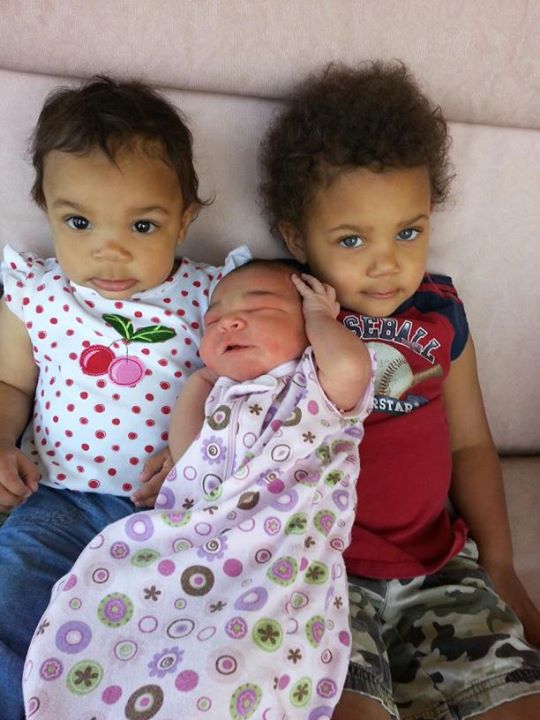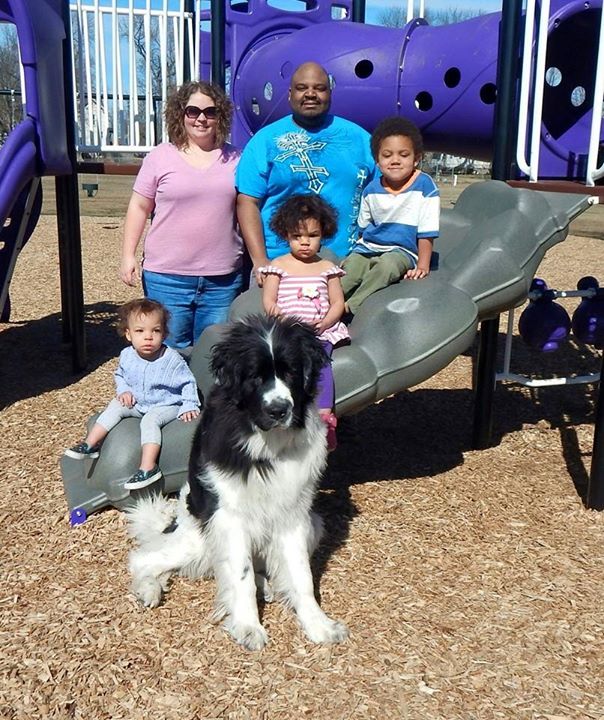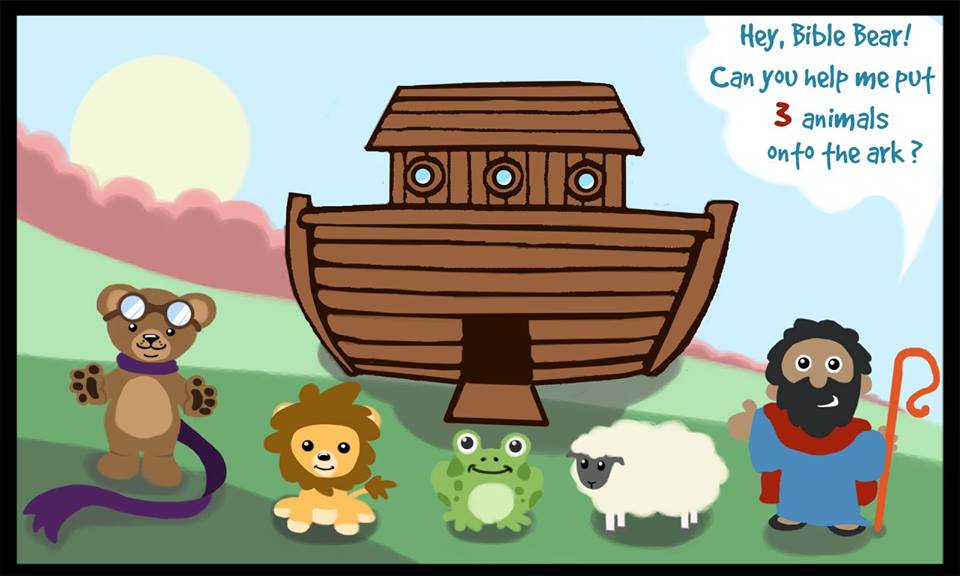Today’s blog post was written by Cara Howard, a dedicated mom of 3 children who were, at some point, all under age 3. I have 2 children, and I used all these tips with great success!
New Baby on the Way? Prevent Siblings Jealousy with these Easy Tips
 I sat on the toilet, staring at the pregnancy test in my hand. The house was quiet. I had *finally* gotten my 24 month old son and 3 month old daughter down for a nap, and I was planning to rest too because I was Oh. So. Tired. I chalked the exhaustion up to having two small children, but then a little voice in my head said, “Maybe you should pee on a stick, just to be sure…”
I sat on the toilet, staring at the pregnancy test in my hand. The house was quiet. I had *finally* gotten my 24 month old son and 3 month old daughter down for a nap, and I was planning to rest too because I was Oh. So. Tired. I chalked the exhaustion up to having two small children, but then a little voice in my head said, “Maybe you should pee on a stick, just to be sure…”
Almost immediately, two pink lines glared at me. I checked the date on the box. It was expired! Maybe it was wrong! I scrounged around until I found another test. Again, two lines.
I wish that I could say I was overjoyed. In reality, I was devastated. I cried. For two solid days, I bawled. My son’s second birthday had just passed the week before, and my 3 month old daughter was desperately trying to breastfeed and gain weight with my failing milk supply. I did the math. My oldest would be just over two and a half, and my daughter would be 12 months old when the third child came. Three children UNDER the age of three.
The time between the positive test and the third child’s birth was filled with anxiety and struggle. But somewhere in the months before she joined us, I pulled it together enough to realize that my small children would need me to be strong and stable when the time came, and so I began reading about how to help them adapt to a new sibling.
There’s lots of good information and ideas on the Internet if your children will be a bit farther apart in age. Read books to them about having a new sibling. Let them tell you their feelings. Show them the baby’s kicks from inside the belly and have them help decorate the nursery. All of those are great tips. Except, none of them made sense in our situation. My two year old wasn’t yet sitting through books or talking much, and my daughter was oblivious to the change in my belly, because she was 10 months old and her only concerns were her next meal and learning to climb the stairs. How do you help very small toddlers understand and accept a new sibling? I ended up seeking out the advice of local mentors and friends who had siblings close in age. I did manage to find a few on-line sources with some helpful suggestions as well.
I won’t lie – my third pregnancy and the first year with three under three was the hardest time period of my life. However, because of the advice I was given, we did NOT have sibling rivalry or jealousy. While I used these tips with closely spaced children, I believe they are useful any time a new family
member joins the household. I hope you find them as valuable as I did.
1. Give the older siblings access to the newborn’s bare head. This probably sounds ludicrous, but it’s vital. A newborn’s lovely scent isn’t accidental – it increases the oxytocin levels in those who are caring for the newborn. The hormone oxytocin encourages the “love” feelings, and helps mothers bond with their babies. But others who smell this new baby scent experience an increase in oxytocin as well. Encouraging the older sibling to kiss and caress a newborn’s head drives their bonding, too. Obviously, this activity needs to be done under close supervision, and with a lot of coaching for the sibling to be gentle. My 2 yr old son and 12 month old daughter met the new baby, kissed her head and snuggled her within hours of her birth and then as frequently as possible over the next few weeks. Both were completely enamored with her.
2. Talk for the baby. Older siblings often don’t understand the ways babies communicate. Let’s face it – parents have a hard time too! But I found that narrating what the baby would likely be saying helped older siblings connect at an earlier age. For example, my two year old would kneel by the baby while she was in her bouncy seat, and make faces at her. The baby would sometimes give him absolutely no response at all, making him frustrated. Here is how I would translate: “Oh look buddy! The baby turned her head so she could see you better. And her eyes are open! That means she really likes what you’re showing her! She thinks you’re a really cool big brother.” The more often I “talked up” the older siblings, the more they were interested in learning to communicate and weren’t upset when the baby started flailing her arms and inevitably hitting them on accident. “Oh did she hit you? Well, she didn’t mean to hurt you and she’s sorry. She just wants to learn how to play with you because she likes you a lot.”
3. Prioritize the older child. (Disclaimer: This particular tactic is only recommended when the infant’s physical needs are met – fed, changed, perhaps being worn in the mother’s sling.) Talking to a baby seems like common sense, but talking to the baby to send a message to the older sibling was a new idea to me. A mentor pointed out that an older sibling frequently hears, “You need to wait – the baby needs…” I don’t think it is realistic to expect a mom to never use that phrase. However, attempting to keep it balanced helps validate the feelings of the older sibling. Let’s say the baby is happy, so the mom sits down to read a short book to the older sibling. With two pages left, the baby starts a little bit of a fuss. Instead of immediately stopping the book, the mom says, “Baby, as soon as I’m done with your brother, I’ll be there. It is important for me to finish this book with him.” Saying this *out loud* lets the child know that mom hasn’t forgotten his needs and desires for time with him, too. He is reassured that he is still just as important and just as loved as the baby.
4. Don’t blame the baby. Resentment because of a new baby is common. They may say things like, “I hate the baby because now mom is too busy for me.” Older children don’t realize that a baby is helpless and has *a lot* of needs, and it’s not the baby’s fault. But the way a mom talks to the older children influences how they perceive baby.
Phrases that blame the baby:
“I can’t help you right now – I’m changing the baby.”
“I can’t hear you; the baby is crying.”
“When I’m done with the baby, I’ll play with you.”
“The baby needs me. I’ll help you in a few minutes.”
Rephrase example:
“I’ll be there when my hands are free.”
“ I’ll talk to you as soon as I can.”
“I love to play with you. I will as soon as I can.” (Maybe set a timer for this one, or engage the older child in helping until you’re free to play.)
“That does sound like a problem! I’ll stop what I’m doing to help you.” (If possible.)
Even though we had many rough days and many tears (including my own) during that first year after the baby came, I’m proud to say that my children have loved each other without hesitation. My son is now four and a half, and this week the girls turn 3 and 2. Of course, we work daily now on how to communicate and navigate interpersonal relationships. Like all siblings, they do fuss and fight occasionally. But there has never been jealousy, resentment or hatred toward each other. None of them had any regression issues. And now that the baby is turning two, they are asking when there will be another baby inside mommy’s belly, because they can’t wait for another playmate to add to their posse.
I am eternally grateful to the mentors who passed on these tips, and I hope you find them valuable as well.
After graduating from Point Loma Nazarene University, Cara Howard spent several years teaching preschool in the Kingdom of Bahrain and elementary schools in Los Angeles.
Today, in addition to homeschooling her children,Cara is a part-time journalist and co-developer of the educational preschool game The Adventures of Bible Bear.
You can learn more about The Adventures of Bible Bear by following their Facebook page.


